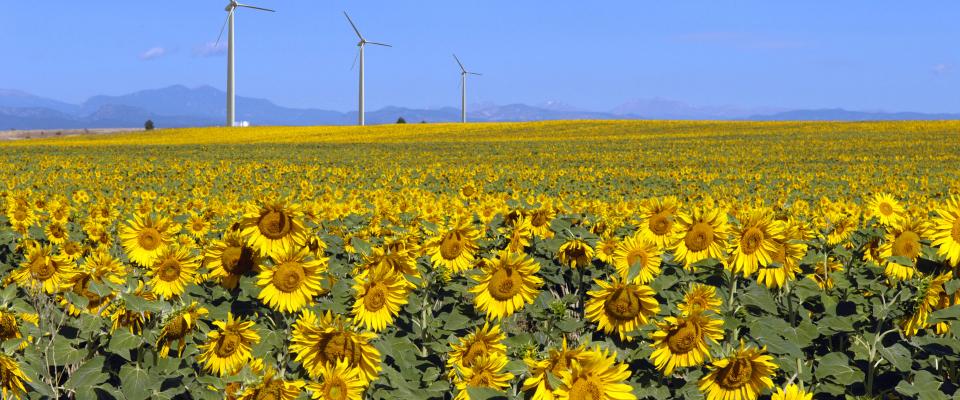KKV.2 Why is a product/service successful
2. Elements of touristic offer
In terms of tourism services, guests satisfy their needs using a complex package of values, consisting of several (7) elements. This value pack consists of the following items:
2.1. Product (produs). Touristic product is the system of those activities that can be carried out by the tourist at the destination, which can form a competitive service and suitable for living a certain experience. Touristic product can be described best with the 4As, in the sense that each touristic product consists of the following elements:
- Attraction ,
- Access ,
- Accommodation ,
- Attitude ,
We identify micro and macro levels referring to touristic product.At the micro level, it is the specific service package offered by a travel agency and at the macro level it is the touristic destination itself and thematic packages offered to meet the requirements of tourists.
Microtouristic product:Eg. Services provided by the Aquarius Park maintained by Sóstó Gyógyfürdő Zrt, which can be used at a certain price.
Macrotouristic product:Eg. All services provided by Sóstó, as geographic place.
It includes along with the services provided by Aquatic Park, services and opportunities to spend free time in restaurants, at Zoo, Museum Village, hotels, in the forest, on the playground, etc.
Destination can be indicated as location where the tourist spends at least one night. It contains attractions and touristic products, related services, which ensures the stay in one place at least one day, and besides the physical character it has several ,,intangibles’’ components such as for example the mark (brand), the image and appearance. Destination has a geographic territory( locality, microregion, region, country, continent), chosen by guests as target territory and has the requested services to welcome guests (accomodation, meals) (Aubert, 2011).A fundamental performance claimed by the touristic product is to be able to meet consumer needs. The most important measure of the utility of the touristic product is the ability to provide experiences, to the extent to which it is able to reach the consumer experiences that he wants to live.
2.2. Price(preț) The income spent freely by the consumer, which the consumer sacrifices for possession or consumption of a product or use a service and ,, gives’’ to the company. In terms of touristic services, the services price may be influenced by quantity or price of raw materials, the prices used by competitors and the price accepted by consumer groups.
2.3. Place (distribution channel) is that distribution place by which the producers deliver the product to consumer, thus removing the difference in time and space between production and consumption. In terms of touristic services, classical ,,logistics’’must be particularly managed. According to Quayle (1993), logistics in its classical way is the process meant to manage and coordonate all activities forming the distribution chain, from the purchase of raw materials and production to distribution of created product to the final consumer. As Christopher (1994) formulated, product has no value until it reaches the consumer at the desired moment and place. Although in terms of services we are not talking about the production of tangible products, however in this case the service must be made so that it can be experienced by the consumer, and often we must make it possible for the customer to reach the created service. The primary task of tourist travels is to create a link between departure place and arrival place, that is between tourist destinations, while a secondary task may be providing opportunities for movement within the places of destination. Upon occurance and use of online interfaces, distribution channels connected with marketing function.
KKV.3 How do we advertise our services?
2.4. Promotion: (marketing communication) All elements, which by their information and motivation function are able to make known a product or service and to influence consumer attitudes or consumer behavior. Thus, the fundamental task of marketing communication is to be able to present in a creative manner tourism services or experiences that can be lived, to tempt the client to try these services and strengthen the guests circle. When developing the communication system used by the company, certain aspects must be considered. These are: message, budget for communication and channel communication.
Marketing message must meet many requirements. Such as credibility, information and creativity.
Colour meaning:
Red:love, anger, fire, blood, passion, exciting, joyful, challenging, exciting,
Blue: happy, peace, calm, warmth, security, affection, ice-cold,
Yellow: sunray, sincerity, glitter,
Green: privacy, calm, kind, hope,
Black: depression, anxiety, death, hate, power, elegance,
White: purity, void, quiet, enigmatic,
Among communication channels used by the company, based on their importance, nowadays the Internet is on the first place or online communication. The results of development of information technology exert its effect on the tourism sector, namely on its actors.
E-tourism includes all the information and communication technologies, which provide opportunities for collaboration during travel organization, both to providers and consumers.
According toTörök Péter, researcher at Magyar Turizmus Rt. (Hungarian Tourism SA), Department of Market analyses and efficiency, the use of the Internet in support of marketing has become significant:
- Advert and publicity–The web pages are the ground of online adverts made by companies, most of the information available on website to the target groups, support directly or indirectly the sale of products or services. In addition, content and design elements (colors used, graphics, sound, animations) of web pages create effectively the image formed about the company and support the work of its external communication (eg .: ads jobs, new information made available for partners). To increase traffic on the website, a wide range of marketing tools are available. Such online tools to increase online traffic and advertising on the internet web page are ads (banners), advertising campaigns via email, conventions ensuring mutual possibility of sharing the website (affiliate marketing) and increasing the percentage of finding search programs. Along with internet marketing, companies fill their own web pages in an amount and frequency increasingly large and by advertising campaigns conducted in traditional media (magazines, shops, TV) and in its own publications.
- Customer service–Due to flux information revolution and the Internet, companies can have a strong bond with their clients, which is an added value to their services. This is important because in the sphere of online shopping the brand loyalty is much lower than average, as they consider more important price and quality. Involving consumers in developing the product or service, creating personalized service and after sales assistance increase customer satisfaction and implicitely return to buy more. Customer service primarily includes various possibilities for transmitting comments and opinions creation of provision (ie. sending e-mail, text message, chat, forums, clubs), but also wallpapers, downloading video and music files, and sending postcards.
- Sale–The Internet offers tourism service within 24 hours, sales opportunities available anywhere in the world. Internet, integrated into a sales strategy across multiple channels is limited in most cases only to select the service, booking or purchase is made through traditional channels continue - in person, by phone or fax - because of concerns about online security. To increase Internet sales is indispensable a detailed description of services, transactions pro consumer and presentation of security guarantees. It is also important to include in the price the lower costs of internet sales, thus offering buyers better prices than in traditional forms of sale.
- Market study –Through the surveys used for market research, conducted via the Internet, can be simply obtained current data, but it should not be overlooked that the structure of the population having internet access differs significantly from society, so data obtained should not be projected on the entire population. In polls or voting placed on the website it is appropriate to focus on information related to the web page.(source:www.itthon.hu)
How cana web pagebe efficient?
- Easy to use
- Creative, aesthetic appearance and uniform
- Efficient
- Easy to find
- Updated
- Interactive
- Fast load
- Can be improved
The first activity of communication of tourism service providers, is when such ,,presentation’’differs from other market players. Its instruments are its vision and mission.
Vision is that goal described to reach in the future.
The mission is to present the way the company wants to follow to attain its goal in the future, tasks and responsibilities it wants to meet in the future, how to achieve them.
Here is an exampleof advert and mission
The mission of Wellness Hotel Katalin is to provide for each guest circle, at any moment of their travel, experiences appropriate to their motivation and exceed their expectations. We, Your hosts, do everything possible so that our hospitality and our continuous developments to make you want to return to us even before leaving. We want our guests to get satisfaction through our high quality services, which are adapted to their desires in a familiar atmosphere. In addition, our hotel believes that its mission is to contribute actively to the development of the locality Gyenesdiás and domestic hotel industry, by its own means, with his professional skills and creativity. A defining part of our company philosophy is to develop continuously, customer-oriented business policy and market, which can be read in detail in our company's background.
The scale of values and commitment of Wellness Hotel Katalin are defined by this mission.
Those who stay at us are our guests in the noblest sense of the word. This is what we offer You - from family to family. (sursă:www.hotelkatalin.hu)
KKV.4 Importance of staff
2.5. People: (human factor) According to Veres (2005), marketing-oriented management of the human factor means to regulate the conduct and communication of people participating in the transaction, which increases consumers satisfaction. In terms of services, the role of the human factor is fundamental and defining as when creating the service the human factor is always present belonging to the sphere front office or back office. Front office (reception staff) indicates man/men who enter into direct and operative communication with the consumer / customer, the / those who create the service. Back office(administrative staff) are people who do not get directly in touch with the consumer / customer, but plays a significant role in all activities of service. For performant and successful providers of tourism services performing the,,human factor’’ is significant in several respects.
Human resource management activities related to tourism services can contribute greatly to the formation of the proper front-office team, when guides candidates with professional skills and necessary knowledge to given device. According to Klemp and Mc Clelland (1986), competence is the personality trait of those performing excellent tasks, such characteristic of the individual, which is indispensable for the effective performance of a function or role. Kubr (1993, in.: Tokár-Szadai, 2013) mentions seven features, which define the successful provider:
Intelectual ability:ability to learn quickly, good capacity of analysis of the problem, ability to synthesize.
Ability to understand people:respect customer, courtesy, ability to socialize.
Effective communication skills and persuasion: eficientăcapacity of active attention, verbal communication skills, non-verbal and efficient metacommunication.
Emotional maturity: balanced behavior, assertive, high frustration tolerance, self-control, flexibility.
Personal ambition and capacity of initiative: motivated attitude and success oriented.
Honest and ethical conduct: ability to recognize the limits of own abilities, striving to find the best places for customer, recognition of errors.
Strong mental capacity.
Example of the importance of staff
When a young person at the start of his career choose a profession in the hotel industry, he undertakes that it will be a good host, because he does not considers hospitality only a source of income, but also vocation. A good employer is also a good host while with all acquired professional knowledge and skills he tries to deserve customer satisfaction so that the customer will always return happy to that place, where he was served with so much kindness: good dishes, beautiful cutlery, nice serving–informal but not too direct and friendly, with care for details and attention.
People working in the hospitality industry, along with professional knowledge they must have innate skills, that are indispensable. These are skills and human character and behavior that can not miss to an employee in the hotel industry, which considers oneself in everyday life:
Politeness, knowledge of human nature, honesty, discipline, sense of duty, character and spirit of responsibility, general education, fundamental professional knowledge, kindness, attention, good memory, sense of observation, vocation, language skills, behavior and emancipated demeanor, good relations with customers, good relations with superiors and colleagues, conscientiousness, self-control, self-education, obey the law.
All these skills and knowledge are not found all togetherin anyone, but by conscious learning,by observing and improving ones character and behavior, by changing behavior and improving everyday language one can gain increasingly more of the above.
In our opinion, this was short and concise formulated by Károly Gundel, after Brillat Savarin's thoughts (high French ethicist) in his book "Employee at a hotel", the following:
„…Everyone can learn to cook, but for culinary art one has to be born…”
„…food and drink can be served, but for the role of waiter host one must be born …”
(source:www.kisfaludyborbar.hu)
Welcomes loudly, never utters a ,, no’’ , is helpful, but not nosy or fawning, speaks informal only in exceptional cases, is not tattooed, does not wear piercing in visible places – this is how the ideal waiter looks like. Careless waiters, unprepared, make a table bitter and although it is not easy, they must manage as a good psychologis the whims of vain, withdrawn or unfriendly guests. In a contest itis now sought the best waiter because the profession has fallen so much that, according to instructors, something must be done about it.(source:www.origo.hu)
Training and motivating the front-office staff properly can be seen as narrow cross-section of delivery process since his task is to make profit, that is operational service; and simultaneously it expresses, builds or destroys for the client the appearance, culture and tourism value scale of the provider. Thus, for successful companies, the human factor has a very important role. The task of front-office management is coordinating the scenes of interaction between consumers and providers, including personal items of meetings.(Czeipel et al. 1985, in.: Veres, 2009). Front-office has a double role: efficientwhich is related to fulfilling the work, the details of which will be defined in the job description; and relational, whose important factors are behavior, communication and appearance.
As we have previously mentioned, ,,due to service feature based on trust, it is important that people working at the front office, from the first contact - the first stage of performance - consciously take care of foundation, building and maintaining a positive first impression, reliable and trusty. The two most important basic rules of coordination of front office are the rules that apply and processes performed in front service to be always clear, management of clients to be effective and preventive (Eigler, 2004, in.: Veres, 2009).
2.6.Physical evidence: (elemente fizice)All those elements, which are present in essential or complementary proportion to the creation of the service and are able to contribute to the final usefulness of the consumer. In our case we can understand here parameterized elements that show the values expressed by the appearance of tourist service provider. Such examples can be interior design, equipment, infrastructure, accessibility, relaxing atmosphere, furniture, air conditioning, lighting, hotel or place of accommodation, size and facilities of rooms. Another element that must be managed can be staff clothing. The physical elements influence and greatly facilitates first impression, set an image on the provider. The environment meant to serve guests is a sort of showcase, it must show the image the provider wishes to create before the visitors’ mind and consciousness. Natural scene of service must satisfy simultaneously needs of employees and customers.
2.7 Processing (proces):means planning, implementation and management of those operational steps, which creating a systematic built process, are able to satisfy customer requirements. On the other hand - putting in front the basic idea of professionalism –it must be able to define and perform steps of ,,specific stages’’service, linked to certain phases; thus, clearly expressing customer continuity and dynamism. Related to consultancy services,Nádor (2007)describes the importance of professionalism, concept that emphasizes the role of commitment, quality and ethics.
KKV.5 Marketing particularities of touristic services
3.Marketing particularities of touristic services
Therefore, services – in a classical way – are called nonphysical solutions to problems and their unique properties are formulated by the so-called principle HIPI:
First and the most important property of services is ,, heterogenity and variability” (Heterogenetity):The performance of tourism service providers and its service or service quality, for instance its ability to meet the need, observed by user, have a variable nature, fluctuating. This variability is the result of,,human factor’’which always participates in a greater or less manner to create services. And for tourist services is true the phenomenon whereby to create one service several persons can participate, who the guests meet in some phases of the supply service. Professional training, motivation, customer orientation, communication, creativity, for instance, the approach of these people may be different, and this can easily lead to fluctuations or possible decrease in the level of services. Front office (reception staff) indicates man/men who are in direct contact with the consumer/visitor, are the people who create the service. Back office(administrative staff) represents the people who do not interact directly with the consumers/guests, but play an important role in activity of service. Performance of people who represent „front-office” or „back-office”, involved in creation and implementation of services can change due to ,,human nature”. This change may have negative character, which entails lowering the quality of service perceived by guests, but through training, development and evaluation of staff, of course, it can take a positive character. Thus, fluctuation in service quality - due to the human factor - is a phenomenon that can not be completely eliminated but it can be reduced to such a level where it does not influence estimation of value by guests.
A second property of touristic services is ,,Intangibility’’. In this regard touristic services can not be palpated, physically touched and no objective information can be obtained before consumption. Thus, the service is also called,, empirical product’’as in order to have information about the advantages, values of service, the customer should try it first. Obviously, this observation does not reduce to zero the role and importance of physical elements. Consider for example ,,fun elements’’ used by water parks, which have an essential tool function for the existence of a service, but equally important is the planning, infrastructure, facilities of a hotel. Their quality influence greatly satisfaction or dissatisfaction of tourists.
Example of written and unwritten intangible rules
Today, at each hotel we can see how many stars it has. But what exactly do these stars mean? How does a hotel get five stars? And is a five star hotel better than a three star hotel? There are many factors that influence our choice. We present bellow the minimum conditions that a five star hotel has to meet compared to three or four star hotel.
Room size
At the three-star hotels, 80% of single rooms have 14 m², and if the room is double- 18 m². If the number of stars is bigger, then the size of the rooms increases as well: single rooms by 2 m², double room by 6 m². .
Room facilities
Bed size has to be 90×190 cm /guest. In some hotels there is the so-called king size bed, with dimension of 190×203 cm. Besides this, rooms have to be provided with chairs, bedside tables, shelves, shelves for bags, lamp, wardrobe, 4 hangers/bed, trash bin, brush for shoes, brush for clothes, curtains or blinds, dresser, coffee table, desk, mirror, lamp, fridge, TV and telephone. At 4 and 5 stars they have minibar, corkscrew, pen and safe box. .
Bathrooms
At least 75% of the rooms must have bathroom which must be equipped with plug, sink, towel rack, cosmetic shelf, rack, trash bin. At the four-star hotels every room should have a bathroom, which must be equipped with a large mirror, laundry basket, hairdryer, cosmetics, shaving mirror. The five star hotels shaving mirror must have an enlarge side. .
Reception
At three star hotel- reception 24 hours, staff working before 4 o’clock must know at least 2 foreign languages,must have a porter, at four star hotel-reception 24 hours, staff must know at least 3 foreign languages, londinier service 16 hours, at 5 star hotel the londinier services is 24 hours.
Change bed linen
At 3 star hotel it is changed twice weekly (bath mat and towels every other day). At 4 star it is changed every 3 days and at 5 star every second day.
Air conditioning (cooling)
Air conditioning is required in the rooms at four star hotels and throughout the hotel at five stars.
Food and beverages range, service
In all three categories restaurants must be a'la carte, opened non-stop. Legislation sets the minimum length of the restaurants schedule, as below: the lower categories breakfast must be served until 10:00, lunch between 11.00-14.00, dinner between 18.00-21.00 and drinks are served 16 hours. Compared to these, at five-star category must be served warm meals between 11.00-23.00 and drinks are served for 18 hours, moreover, there is a separate menu of beverages and sugestions related to drinking.
Both at four star and five star hotels room-service of 24 hours is mandatory.
For integrating in a certain category it is inevitable to provide so-called optional services . Certain services are provided a predetermined number of points and in each category hotel must obtain the score established to acquire the desired category.
Of course, those listed are only the minimum requirements, deviation from them in positive direction in terms of visitors is possible without any problems.(source:http://hotelek.info/index.php/3-4-vagy-5-csillag )
The third particular property of services is,,Perishability’’:In this respect, created services or products can not be stored, stocked, thus unused services today, means ,,lost’’turnover, which can not be recovered. If front-office staff do not succeedto provide services during working hours, then ,, the service product’’ of that period is lost, it can not be capitalized later. An important phenomenon related to the perishable nature is request fluctuation, one of the typical problems of providers. Therefore, managing campaign type demand or unexpected growth in demand greatly increases the value of proper planning of availability of accommodations. It is necessary an accurate forecast demand compared with possibilities and a serious planning of capacity so that material and personnel resources should not remainunexploited, but to be able to manage dynamically and efficiently a sudden increase in the number of customers.
The forth and the last particularity of services is,,Inseparability’’.Provision and use of the service are inseparable in time and space, for instance ,,creation/production’’ and ,,consumption’’ occur simultaneously. The beneficiary participates actively in services. This phenomenon can reassess possibility and absolute responsibility of the provider, as,, human factor’’, regarding the success of services.







